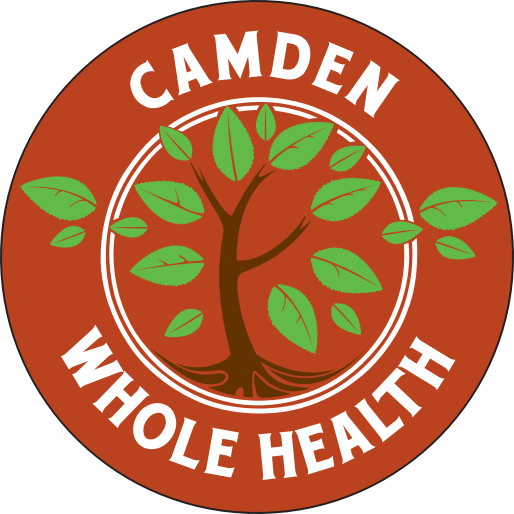by Alicia Snow
I was reading an article in the New York Times a couple of years ago and was surprised by the title of an article which read, “Scientists prove that green tea is good for you.“ The irony here is that for thousands of years, green tea has been lauded by the eastern cultures, whose medical systems are at least 23 centuries in the making. They have known about the beneficial effects of tea drinking since before western culture had a medical system with which to validate their findings. That being said, the beneficial effects of L-theanine, an amino acid found in green tea, are manyfold and this is now an ‘evidence-based’ assertion.
Green tea (Camellia sinensis), which is the second most consumed beverage in the world, contains a considerable amount of theanine (1.0%–2.5%) in the dry weight of the leaves (Adhikary & Mandal, 2017). We know that green tea keeps us awake without giving us the jitters, and we know that it is an antioxidant and therefore counteracts free radicals. But did you know that the l-theanine found in green tea also has significant effects on anxiety and attention span?
Theanine is a bioactive amide amino acid, which has been known to have influential effects on multiple diseases, such as diabetes, cardiovascular disorders, hypertension, stress relief, tumor suppression and liver injury by reducing serum amyloid-alpha, an inflammatory marker (Akhikary & Mandal, 2017). But even more remarkable is what we are learning about its effects on the mind.
In a series of studies on the brain, l-theanine has been found to increase serotonin and dopamine activity, to improve sleep and memory, and to induce relaxation through enhancement of alpha wave activity in the brain (Akhikary & Mandal, 2017; Hidese et al., 2017; Higashiyama et al., 2011). Alpha waves are one of five types of waves within the brain. They are found to be active in meditative states and are associated with a restful mental state, sleep and creativity. In a study published in Acta Neuropsychiatrica in 2017 researchers found that “l-theanine induces an increase in occipital and parietal alpha activity in human participants” (Hidese et al, 2017). They go on to say,
The anti-anxiety features of l-theanine are achieved through enhanced alpha electric band generation in the occipital and parietal regions of brain and increased synthesis of y-aminobutyric acid (GABA). The supportive mechanism behind such activity revealed that enhanced GABA levels help increase levels of brain’s dopamine and serotonin levels that ultimately result in general feelings of calm and well being. . . .unlike other conventional anti-anxiety treatments, l-theanine did not result in increased drowsiness, slowed reflexes, or impaired concentration. (Hidese et al, 2017).
Beyond the effects of calming and quieting the brain, l-theanine has also been found to increase concentration, information processing and attention span, particularly when taken in conjunction with caffeine, as within a cup of green tea (Higashiyama et al, 2011). It is important to note that the studies demonstrate greater efficacy at improving anxiety levels, attention span and improving mood in subjects who demonstrated high anxiety. Less profound results were seen in people with mild anxiety. Furthermore, l-theanine has been shown to lower systolic and diastolic blood pressures, and therefore should be used cautiously by people taking blood pressure medications or by those who are susceptible to low blood pressure.
Dosing is recommended at 200 mg daily for people with moderate to high anxiety. According to Higashiyama et al, “The tested dose of l-theanine was confirmed as 200 mg for enhanced performance in visual attention task, and reaction time response, among the subjects with higher anxiety propensity symptoms”(Higashiyama et al, 2011). This is an amount much higher than can be obtained within a cup, or even several cups of green tea. Enter the natural supplement. Capsules of l-theanine at the 200 mg daily dose are available at Emerson Ecologics, and here at the pharmacy at Camden Whole Health. Ask your holistic practitioner about the use of l-theanine if you meet the parameters described here, or enjoy your next cup of green tea knowing that it is providing a nurturing nudge to your alpha waves, increasing your attention span, lowering your anxiety and increasing your creativity! Enjoy.
If you would like the advice or attention of a holistic practitioner, I am currently accepting new patients. Check out my website at aliciasnownp.com for more information about my practice.
References
Adhikary R., & Mandal, V. (2017). L-theanine: a potenital multifaceted natural bioactive amide as
health supplement. DOI10.1016/j.apjtb.2017.08.005
Hidese, S., et al. (2016). Effects of chronic l-theanine administration in patients with major
depressive disorder: an open-label study. DOI: 10.1017/neu.2016.33
Higashiyama, A. et al. (2011). Effects of L-theanine on attention and reaction time response.
DOI: 10.1016/j.jff.2011.03.009

